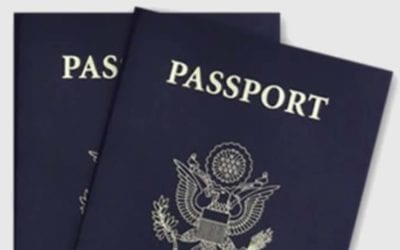According to the U.S. Department of Transportation’s Bureau of Transportation Statistics (BTS), airlines collected $1.5 billion from baggage fees and reservation change fees in the second quarter of 2011, according to the airline financial data released yesterday.
The top legacy carriers, low-cost carriers and regional airlines reported overall quarterly operating revenue of $38.6 billion and operating expenses of $36.6 billion to the Department of Transportation (DOT).
The airlines, according to reports filed regularly, received $887 million from baggage fees and $612 million from reservation change fees in the second quarter.
Though these hundred of millions of dollars that have been collected from passengers are significant, they are only a portion of the overall fees collected by the airlines. Presently, only baggage charges and change fees are reported.
In another regulatory tug of war between the airlines and advocates for price transparency, the DOT has filed a proposed rulemaking to require airlines to report 16 additional categories of fee revenue in addition to the baggage and reservation change fees to provide additional airline pricing information to consumers and airline analysts. The comment period for this rulemaking closed on September 13th and a final rule is expected early in 2012, if not sooner.
The Consumer Travel Alliance (CTA) has been active filing comments and bringing in other consumer groups and interested parties into this discussion.
CTA noted in their comments:
-
In addition to the listing of ancillary fees that DOT has proposed in the NPRM to include in the reporting requirements, CTA suggests that several additional categories be added dealing with seat reservations. With the proliferation of fees, a seat reservation is not simply a seat reservation. Today there are “upgrade fees,” “extra-legroom seats,” specific seat assignments and “early boarding options” that have not been included in the DOT listing. These ancillary fees are becoming more and more important to travelers and are an integral part of the consumer experience.
Several fees included in the DOT NPRM listing of ancillary fees that are of less importance to consumers and most likely to DOT, are the reporting of sales of food and beverages, alcoholic drinks, in-flight entertainment/Internet access, commissions on travel packages, travel insurance, duty-free sales and airport lounge access. Revenues generated by these operations do not impact consumers in the same way that customer service items related to the actual act of travel or the changing and cancelling tickets. Items such as food sales, etc. noted above seem to fall under operational fees and do not impact the consumer experience any more than how many different types of restaurants are available in the waiting area or the differences in private insurance policies that passengers carry. CTA cannot see how requiring the airlines to report these purely commercial transactions will improve the passenger experience or reduce unfair and deceptive practices. Collecting too much data will only add expense to the collection from the airline side of the regulation and to the DOT analysis from the regulator’s side.
CTA also noted the increased complexity of tracking baggage fees and other ancillary fees because of the proliferation of code-share and alliance issues.
-
What data rules will apply to a flight with a DL, US, UA or AA designator that originates overseas on a foreign carrier? The questions are legion and there is more than only data collection involved here. Other customer service issues will be affected by this ruling such as what airline is responsible for the customer when it comes to baggage sizes and rules that differ from airline to airline and from country to country and that are not uniformly managed or enforced from airport to airport. Perhaps, defining whose balance sheet receives the fee may lead to a definition of which alliance or code-share airline has responsibility for the customer in terms of their contracts of carriage and DOT regulations.
If anyone is interested in following the comments from airlines, travel agents and consumers filed regarding this latest DOT proposed rulemaking they can find the records at www.regulations.gov and search for Docket ID No. RITA-2011-0001.
The give and take over proposed regulations in Washington, DC, is fascinating and intense. These comments are the recorded portions of the discussion. Literally, hundreds of meetings take place between the interested parties and DOT with regards to each proposed rulemaking and later regarding the enforcement of issued federal regulations.
The next big proposed rulemaking will focus on airline price transparency and the development of regulations to allow airline consumers to see the full price of planned travel including not only the airfares, but baggage fees and seat reservations fees as well.

Charlie Leocha is the President of Travelers United. He has been working in Washington, DC, for the past 14 years with Congress, the Department of Transportation, and industry stakeholders on travel issues. He was the first consumer representative to the Advisory Committee for Aviation Consumer Protections appointed by the Secretary of Transportation from 2012 through 2018.


